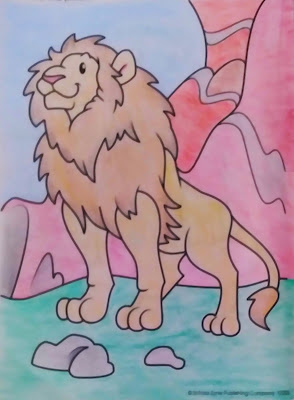[from The Temple]
Rise, heart, thy lord is risen. Sing his praise
Without delays,
Who takes thee by the hand, that thou likewise
With him may'st rise:
That, as his death calcined* thee to dust,
His life may make thee gold, and, much more, just.
Rise, heart, thy lord is risen. Sing his praise
Without delays,
Who takes thee by the hand, that thou likewise
With him may'st rise:
That, as his death calcined* thee to dust,
His life may make thee gold, and, much more, just.
Awake, my lute, and struggle for thy part
With all thy art,
The cross taught all wood to resound his name
Who bore the same.
His stretched sinews** taught all strings what key
Is best to celebrate this most high day.
Consort, both heart and lute, and twist a song
Pleasant and long;
Or, since all music is but three parts*** vied
And multiplied
Oh let thy blessed Spirit bear a part,
And make up our defects with his sweet art.
******
--George Herbert, Welsh-Anglican Priest (1633)
With all thy art,
The cross taught all wood to resound his name
Who bore the same.
His stretched sinews** taught all strings what key
Is best to celebrate this most high day.
Consort, both heart and lute, and twist a song
Pleasant and long;
Or, since all music is but three parts*** vied
And multiplied
Oh let thy blessed Spirit bear a part,
And make up our defects with his sweet art.
******
I got me flowers to straw**** thy way;
I got me boughs off many a tree:
But thou wast up by break of day,
And brought’st thy sweets along with thee.
The Sunne***** arising in the East,
Though he give light, & th’ East perfume;
If they should offer to contest
With thy arising, they presume.
Can there be any day but this,
Though many sunnes***** to shine endeavour?
We count three hundred, but we misse:
There is but one, and that one ever.******
|
*calcined: Reduced to lime or other substance. (Oxford English Dictionary.) In this case reduced to our lowest commonest denominator, dust, of which we all are made.
**stretched sinew: Christ on the cross. Crucifixion stretches the sinews & ligaments horribly. Herbert, a lute player, compares this to the strings of a stringed instrument.
*** three parts: Most chords have only 3 different notes which are repeated, multiplied, at different octaves in different voices or instruments.
Note on Form: Herbert’s poems sometimes take a double-poem organization with two separate stanza forms. Because he played the lute and was familiar with popular songs of his day, he may have adapted this two-part structure. He may even have intended the poems to be sung.
****straw: "strew", scatter without plan
*****Sunne/sunnes: Old spelling for "Sun"
******The" Son" of God (Jesus) is the one and only Eternal "Sun". (Cp. Malachi 4:2; the "Sun of Righteousness [Messiah] shall rise with healing in His wings.) |







.jpg)
.jpg)

.jpg)



